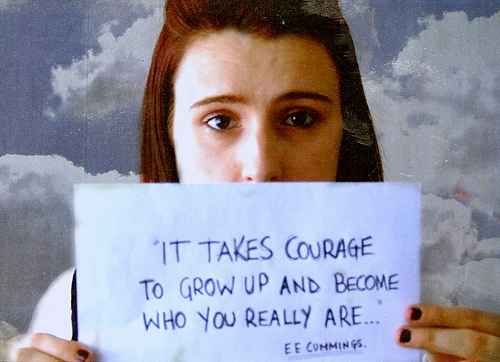IDEATION 2020: Just-in-Time Brainstorm Facilitation Coaching

In honor of the year 2020 and the classic meme it represents (i.e. clear vision), Idea Champions is thrilled to announce the launch of an exciting new offering -- an elegant way for its time-crunched, Conducting Genius graduates to upgrade the quality and impact of their brainstorming sessions.
We call it Ideation 2020 -- the simplest, most time-efficient way we can think of to help our clients get the kind of results they want from their in-house, ideation sessions.
Simply put, we're offering live, online brainstorm facilitation coaching sessions in 20, 40, and 60 minute increments to help you:
-- Prepare for upcoming, high profile ideation sessions
-- Design brainstorm sessions that get results
-- Catalyze big, bold, breakthrough ideas
-- Learn and practice new creative thinking techniques
-- Sharpen your group facilitation skills
-- Better understand the fine art of emergent design
-- Quickly gain the confidence of difficult groups
-- Fully engage even the most curmudgeonly participants
-- Stay energized, focused, and on the leading edge of brilliance
-- Email your questions to us and get our responses ASAP
INTRIGUED? HERE'S THE PROCESS GOING FORWARD
1. We schedule a conversation to explore the possibilities
2. You decide on what topics you want our coaching support
3. We agree on a date for your first coaching session
4. You sign and return our Letter of Agreement

WHO ARE WE?
Idea Champions is one of the world's premiere facilitators and trainers of organizational brainstorming sessions. Ideas generated in our sessions have resulted in millions of dollars of revenue and cost savings for our clients. And we've worked with just about every industry on planet earth: high tech, insurance, transportation, education, telecommunications, pharmaceutical, manufacturing, chemical, construction, retail, health care, entertainment, public relations, marketing, consulting, and financial services.
Our story
Our clients
Client testimonials
More client testimonials
What PR firms say about our impact
A few case studies
Our 142-page brainstorm facilitation workbook
One of our online creative thinking tools
Our response to brainstorm session naysayers
Posted by Mitch Ditkoff at 03:56 PM | Comments (0)
October 06, 2019A Real Life Example of the Power of Giving Feedback

Most Fortune 500 companies have some kind of corporate strategy in place for ratcheting up their innovation efforts. Consultants are hired. CEOs give pep talks. And internal initiatives are launched.
To the casual observer, it all looks good, but few of these initiatives ever amount to anything In fact, research indicates that 70 percent of all change initiatives fail.
Why such a low percentage? It depends on who you ask. Senior leaders see it as a workforce issue. The workforce sees it as a senior leader issue. Consultants see it as an issue their company is best suited to resolve. And the occasional in-house astrologer sees it as a Gemini in Pluto issue. Bottom line, nobody really knows.

Here's how I see it: one of the biggest (and least addressed) reasons why most change initiatives fail can be traced back to the cro-magnon way most innovation-seeking people give and receive feedback -- especially when it comes to pitching high concept ideas.
Case in point: Some years ago, Lucent Technologies asked me to facilitate a daylong "Products of the Future" ideation session for 75 of their best and brightest. The pay was good. The challenge was compelling. And I was going to have carte blanche to design the session just the way I wanted.
Or so I thought.
The woman who had contacted me, I quickly found out, reported directly to the CEO. So far, so good. And her concept of the session was spot on -- that the CEO and his Direct Reports (a new rock band?), would make an appearance at the end of the day to listen to five BIG IDEA pitches and then give their feedback, real-time.
Theoretically, this made perfect sense. But theory and reality are two very different things -- kind of like the difference between asking your teenage daughter to clean up her room and her actually doing it.
The harsh reality is this: The vast majority of Senior Leaders are not very skillful when it comes to giving feedback -- especially in response to ideas that challenge the status quo. "Feedback," for them, has become code for "With all due respect, let me tell you why your idea sucks".
As a facilitator of high profile brainstorming sessions, I cannot, in good faith, allow this all-too-predictable dynamic to play itself out. Not only will potentially profound ideas be prematurely dismissed, the hard-working, brilliant people who have spent all day generating and developing these ideas will become royally pissed, disempowered, humiliated, passive/aggressive, and depressed. The result? Very few of them will want to participate in future sessions.
So I told the consultant-seeking woman from Lucent that I, in service to the outcomes she was about to hire me to ensure, needed to meet with her CEO so I could teach him and his team how to give effective, humane feedback to a roomful of 75 future product generating optic fiber geniuses.
 "Impossible!" was her response. "Our CEO is very busy man -- and besides... he doesn't like consultants."
"Impossible!" was her response. "Our CEO is very busy man -- and besides... he doesn't like consultants."
"Got it," I said, quickly assessing my options. "And thank you, so much, for your kind invitation to facilitate the session, but I must respectfully decline" -- and, with that, I began packing up my briefcase.
This, shall we say, caught her slightly off guard. "I... don't understand where you are going with this," she replied.
"Look," I said. "If you want to get meaninful results from an all-day brainstorming session, especially if you are flying people in from who knows where, we've got to be absolutely sure that the feedback at the end of the day is done well. I am not going to walk 75 of your best and brightest people off the plank."
I could tell that my unexpected feedback was registering. "OK, OK...but the best I can do is get you five minutes with him during the coffee break just before the report outs".
"Great," I said. "I'll take it."
Fast forward two months.
From 8:30 am -- 3:00 pm, 75 of Lucent's most brilliant technologists conjured up products that made my head spin. The room was abuzz with glorious possibilities. The sense of accomplishment was palpable. At 2:45 they selected five of their best ideas and summarized them on flipcharts. At 3:00, it was time for coffee and sugar, me craning my head for the CEO and his merry band of direct reports.
I envisioned him to be a tall man, silver-haired, with a large Rolex and a steely look in his eyes -- someone who might be good friends with the Governor and eventually have his portrait hanging in the lobby at headquarters. He was, much to my surprise about 5'6", wearing a Mickey Mouse t-shirt, loafers, and no socks. My kind of guy.
"Rich," I began, extending my hand. "Welcome, Mitch Ditkoff here from Idea Champions, facilitator of today's extraordinary ideation session, "how would you like to learn a simple technique in the next five minutes that will not only take all the dread out of giving feedback, but spark some seriously powerful idea development on the spot?"
He looked at me as if I'd just given him the holy grail. "You're on!"
"Great. Here's how it works," I began. "When an idea is pitched, first say what you LIKE about it -- the upside, what's promising. After a few genuine likes, then express your CONCERNS -- the stuff you probably wanted to say in the first place. But for each concern you express, it will be your responsibility to follow it with a SUGGESTION, a way that would resolve your concern and keep the idea alive Got it?"
"Got it."
"Oh... one more thing, Rich. If you forget to use the method, do I have your permission to remind you?"
"Absolutely".
The senior team took their place on stage, sitting behind a table, draped in black, that reminded me of the Nuremberg Trials. The 75 brilliant brainstormers took their seats at round tables -- everyone attentively listening to me describe the feedback process that was just about to unfold.

The first BIG IDEA pitch was excellent -- a compelling idea for a telecommunications platform of the future that was utterly mind blowing. The audience applauded, I acknowledged the presenter, and then gave the floor to the CEO, reminding him to use the feedback technique I'd taught him just a few minutes ago -- which he proceeded to do for, oh, maybe 30 seconds or so.
After that? It was Apocalyse Now meets The Godfather, with a little Don Rickles in Vegas thrown in for good measure, a scene I'd witnessed countless times before in corporate America -- the kneejerk, reptilian-brained, go-for-the-jugular tendency most senior executives have to focus on what's wrong with a new idea before what's right.
Speaking into the mic in my best baritone imitation of the Wizard of Oz, I quickly intervened.
"Oh Mr. CEO of a very large and profitable telecommunications company. Remember the LCS technique! First your LIKES, then your CONCERNS, then your SUGGESTIONS."
In an optic fiber nanosecond, he sheepishly smiled, thanked me for the reminder, and returned to the technique.
The rest of the session went off without a hitch. Five powerful ideas got pitched. Seven of Lucent's top executives weighed in with insight, honesty, and graciousness. And 75 aspiring innovators experienced something they had probably never experienced before -- that it was possible to spend all day brainstorming "out there" possibilities and get the kind of feedback from senior leadership that was honorable, empowering, easy-to-listen to, and immediately helpful.
SO WHAT? Ever hear the phrase "ideas are a dime a dozen." Of course you have. It's one of the classic truisms we were all brought up to believe. That old saw, however, is less about ideas being inconsequential, than it is about people not knowing how to elicit their value. Granted, not every idea is worth developing, but far too many good ones are lost along the way because the person to whom the idea is pitched is blinded by their own knee jerk reactions.
The literature is filled with examples of great ideas whose value was not immediately recognized. The steam engine. The MacIntosh. FedEx. And the Post-It Note just to name a few. All of them were pitched to the "powers-that-be" and all were victims of knee jerk, naysaying, idea killing behavior. Yes, it's true, many senior leaders beat the drums for "out of the box thinking". But when push comes to shove, as it often does, their drumming is more like fingernails on the edge of an office desk than a conga player with fire in his eyes. So let's give our senior leaders what they need to make the shift from theory to practice -- and that is a simple method for them to respond to new and untested ideas in a way that increases the odds of innovation actually happening.
NOW WHAT? Think about your style of responding to new ideas. Do you listen? Do you pause long enough to see the seed of innovation? Do you give meaningful feedback in a humane way? And what about your organization? Do people know how to give and receive feedback? Do they take the time? Does the process increase the odds of innovation becoming a reality? If not, what can you about it this week to turn things around?
Posted by Mitch Ditkoff at 06:46 PM | Comments (0)
October 02, 2019The Five Regrets of the Dying

Bronnie Ware is an Australian nurse who spent several years working in palliative care, caring for patients in the last 12 weeks of their lives.
She recorded their dying epiphanies in a blog called Inspiration and Chai, which gathered so much attention that she put her observations into a book called The Top Five Regrets of the Dying.
Ware writes of the phenomenal clarity of vision that people gain at the end of their lives, and how we might learn from their wisdom.
"When questioned about any regrets they had or anything they would do differently," she says, "common themes surfaced again and again."

THE FIVE REGRETS OF THE DYING
1. I wish I'd had the courage to live a life true to myself, not the life others expected of me.
"This was the most common regret of all. When people realize that their life is almost over and look back clearly on it, it is easy to see how many dreams have gone unfulfilled. Most people had not honored even a half of their dreams and had to die knowing that it was due to choices they had made, or not made. Health brings a freedom very few realize, until they no longer have it."
2. I wish I hadn't worked so hard.
"This came from every male patient that I nursed. They missed their children's youth and their partner's companionship. Women also spoke of this regret, but as most were from an older generation, many of the female patients had not been breadwinners. All of the men I nursed deeply regretted spending so much of their lives on the treadmill of a work existence."
3. I wish I'd had the courage to express my feelings.
"Many people suppressed their feelings in order to keep peace with others. As a result, they settled for a mediocre existence and never became who they were truly capable of becoming. Many developed illnesses relating to the bitterness and resentment they carried as a result."
4. I wish I had stayed in touch with my friends.
"Often they would not truly realize the full benefits of old friends until their dying weeks and it was not always possible to track them down. Many had become so caught up in their own lives that they had let golden friendships slip by over the years. There were many deep regrets about not giving friendships the time and effort that they deserved. Everyone misses their friends when they are dying."
5. I wish that I had let myself be happier.
"This is a surprisingly common one. Many did not realize until the end that happiness is a choice. They had stayed stuck in old patterns and habits. The so-called 'comfort' of familiarity overflowed into their emotions, as well as their physical lives. Fear of change had them pretending to others, and to their selves, that they were content, when deep within, they longed to laugh properly and have silliness in their life again."
Do you have a story to tell before you die?
Why did I write my book?
Inspiring links on the power of storytelling
Posted by Mitch Ditkoff at 11:47 PM | Comments (0)














